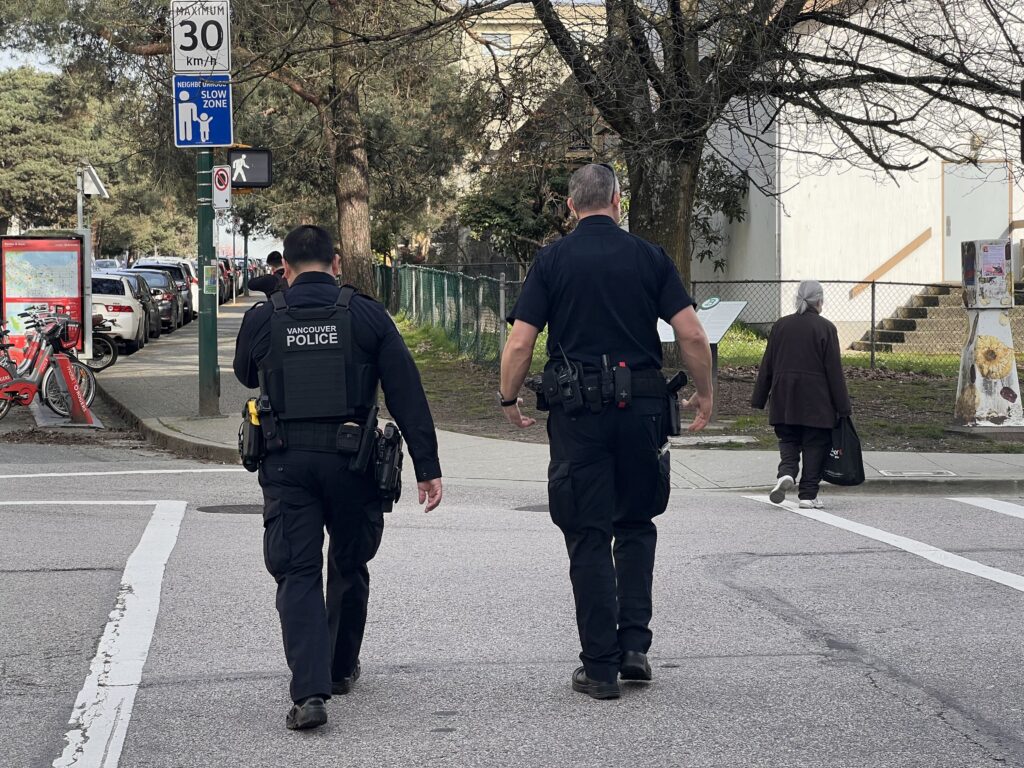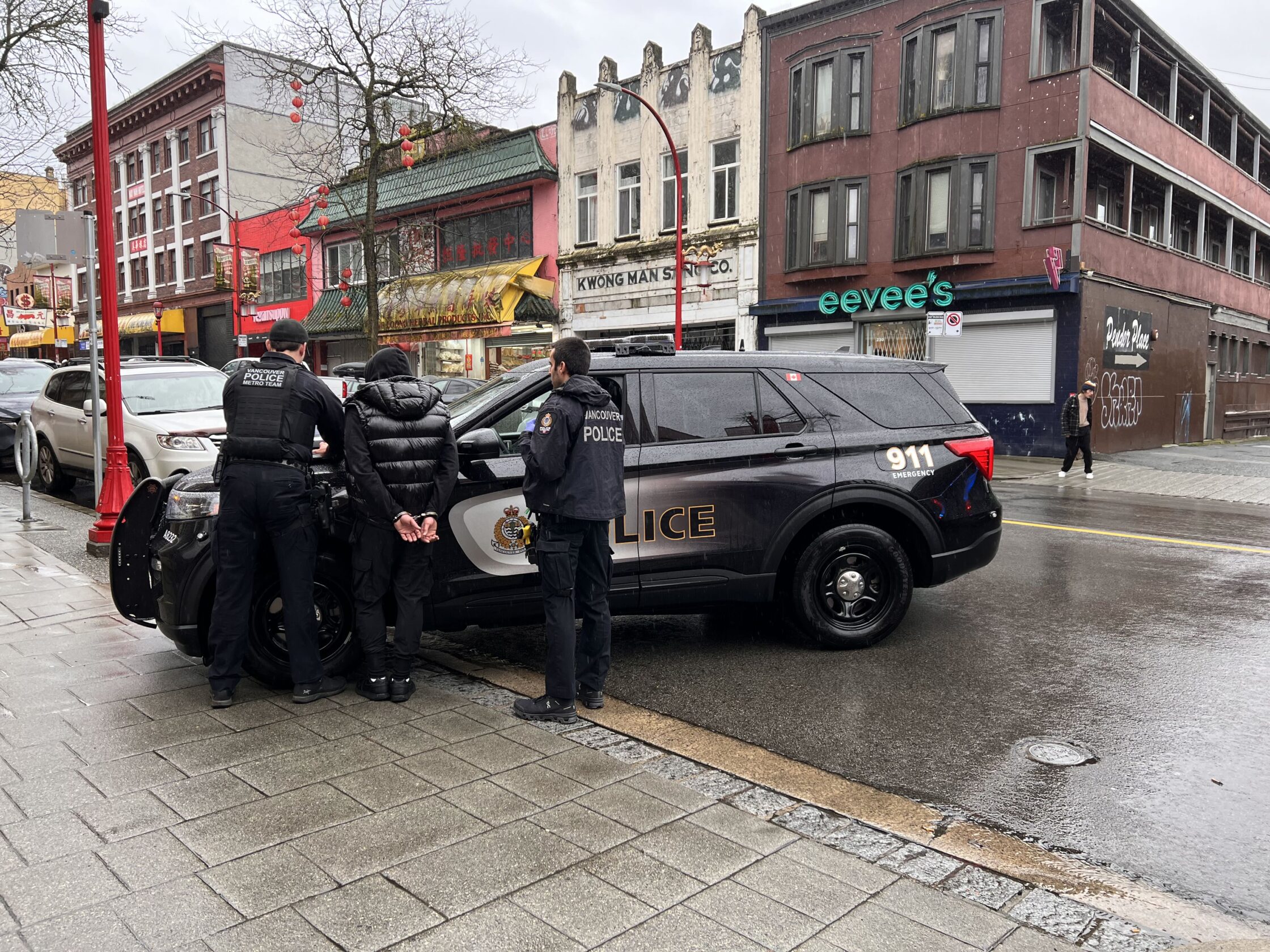Vancouver‘s ruling ABC party is on a task force roll. Last Tuesday, Council voted to create another task force aimed at curbing shoplifting and retail theft. The announcement comes shortly after Council’s establishment of “Task Force Barrage” on the Downtown Eastside.
The motion to form the new task force was brought by Councillor Brian Montague, a former police officer. The “Retail Security Task Force” is tasked “with conducting a thorough assessment of the root causes and impacts of retail theft, including but not limited to organized crime, social factors, enforcement challenges, and existing legislative and policy frameworks.”
The Vancouver Police Department (VPD) released numbers on March 6 following their forum on retail crime which suggest that shoplifting has increased by 12% in 2024, and by 40% in the Downtown core.
Jeff Shantz, a professor of criminology at Kwantlen Polytechnic University, is skeptical of the VPD numbers.
“Overall, crime in Vancouver trended lower in 2024 than the previous year,” says Shantz. “This was so for all four Vancouver patrol districts, according to a VPD report to the police board.”
He explains that the VPD reports that violent crime fell by 6.8% in the third quarter compared with the same period last year. Property crime was down 13.6%, with a 24.2% drop in break-ins.
“So, is the police reported increase in shoplifting real? Depends what you mean by real. Where police stoke fears and outrage about specific actions, they tend to get increases, partly associated with the police stoking of the issue. It doesn’t mean something is actually happening more.”
He adds: “Shoplifting rates can also be influenced by police propaganda campaigns directed at businesses to have them increase reporting and calling for reporting for all incidents, including minor ones.”

“At the same time,” Shantz continues, “we shouldn’t be surprised that in times of sharpened economic crisis, economic restructuring, growing poverty, cost of living increases, housing crises, et cetera, that more people might need to turn to shoplifting to meet their needs. Or more are deciding that the risk of shoplifting is now less than being deprived of what they need. It’s now a necessary option.”
It seems unlikely that the task force will base its work on such an analysis. It and VPD’s Project Barcode are being driven by a panic whipped up by the Save Our Streets Coalition, a self-described movement of “concerned citizen groups and businesses from throughout British Columbia.”
The coalition was founded by some of the province’s wealthiest people. Among the founding members are retailers London Drugs, owned by billionaire Brandt Louie; Aritzia, owned by billionaire Brian Hill; Lululemon, owned by billionaire Chip Wilson; and Save-on-Foods, owned by Jimmy Pattison, the sixth-wealthiest person in Canada.
This coalition of lobbyists advocates for a publicly funded law enforcement response to shoplifting, including restricted bail, longer prison sentences for “repeat offenders,” and involuntary treatment of people with mental health and addictions problems. They claim that retail crime is costing the average B.C. family $500 per year as retailers pass security costs on to their consumers.
Shantz points out that increased criminalization and enforcement also come at a significant cost to the public. The VPD is asking for a $23 million increase in funding in 2025, in part to cover costs associated with the crackdown on retail crime. This would bring the forces’ total funding to $434 million, at least 20% of the City of Vancouver’s total annual budget.
Longer prison sentences would also come with significant costs to the public. One year in a federal facility costs on average $126,000. Involuntary treatment for mental health and addictions is likely even more expensive, keeping in mind that demand for the cheaper, voluntary option far outstrips supply.
In its press releases and open letters, the coalition of lobbyists avoids mentioning what most experts consider the most important cause of theft increases. Experts say that the “ideal” amount for rent is one third of one’s income. A minimum-wage worker in the Greater Vancouver has to work 140 hours just to pay the average rent of a one-bedroom apartment ($2490 per month). At 35 hours a week, this translates to a whopping 90% of monthly income.
The situation is even worse for disabled people on government assistance, who receive $500 per month for rent and $983.50 for all other costs.


Be part of the conversation!
Only subscribers can comment. Subscribe to The North Star to join the conversation under our articles with our journalists and fellow community members. If you’re already subscribed, log in.